I’m a writer, but of course, nobody’s perfect. Those are the words Billy Wilder chose for the epitaph on his grave. Considered one of the greatest film directors of all time, good old Wilder always thought of himself, above all else, as a writer, as someone who told stories. And that is what he did all his life, telling stories, whether as a journalist in Austria, a taxi driver in Berlin or a screenwriter in Hollywood.
Wilder was so fond of stories that it was never known whether he was telling a true story or embellishing it to the point of fiction. Of the many stories he told, the best ended up being filmed, although others he kept to himself, like the one about how when he arrived in New York, fleeing the Nazis and with hardly any knowledge of English, he managed to get through customs, irregularly, thanks to a film buff official who, when Wilder told him he wrote films, let him through on one condition: make good films, Billy says he told him. If the anecdote is true, Wilder went far beyond his promise, for not only did he make good films, but he made three or four of the best films of all time and a handful of other marvels. It seems clear that nobody is perfect, but when it comes to storytelling, Billy Wilder was pretty close to it.
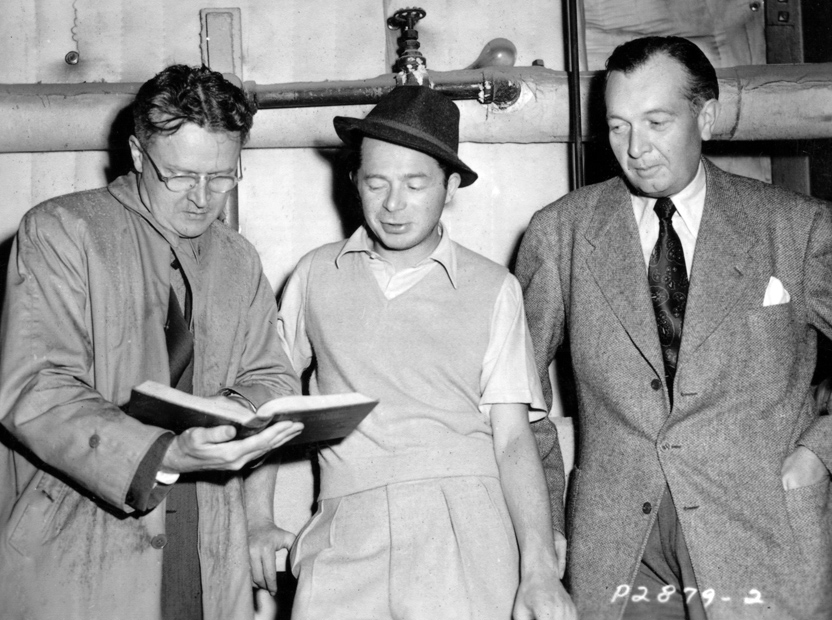
Charles Brackett (screenwriter), Billy Wilder (director) & Doane Harrison (editor) On the set of The Major and the Minor (1942).
With 26 films as a director behind him, I have decided to go through his career through my ten favourites, a list whose enormity is confirmed by the brilliance of the absent ones, things as remarkable as Sabrina, Irma la Douce, The Fortune Cookie, The Private Life of Sherlock Holmes or Avanti!
Double Indemnity (1945)
Wilder liked to write with someone else, at first because he didn’t have a good command of the language, then because he always thought it was good to hear a second opinion. His most important writing partner was Charles Brackett with whom he found success in the USA when they began writing for Wilder’s favourite director, Ernst Lubitsch. For him they wrote Bluebeard’s Eighth Wife and Ninotchka, but their collaboration also produced other wonderful films such as Midnight and Ball of Fire. Brackett also continued to work with Wilder when he went behind the camera and began his career as a director. But when he was interested in adapting James M. Cain’s novel Double Indemnity, Brackett didn’t want to participate, he didn’t like Cain and considered the novel too grim. So Wilder found another partner, and that partner was none other than the world’s greatest crime writer, Raymond Chandler. The two writers didn’t end up getting along, but the result was magnificent, Wilder was in charge of providing the structure and the novelist delivered some of the best lines, such as one that marked Wilder: Nothing is as empty as an empty swimming pool.
The fact is that Double Indemnity is one of the best films noirs in history, as well as the film that put his name among Hollywood’s greatest. A tough and cynical film, perfect black and white photography, a Barbara Stanwyck delivering the ultimate femme fatale and a perfect script that left no loose ends and made the film the perfect definition of film noir.
The Lost Weekend (1945)
In the 40s and 50s, alcohol was a fundamental part of American man’s life – one only needs to look at the films of the time or such well-documented series as Mad Men – but alcoholism was an almost taboo subject in Hollywood. Billy Wilder broke it with The Lost Weekend, in which he delivered a faithful, honest and hard-hitting account of this addiction. The film was based on a book by Charles R. Jackson and featured an immense lead performance by Ray Milland.
The film was so stark and realistic that the alcohol industry tried to prevent it from being seen, offering 5 million euros to Paramount not to release the film. The production company refused and Wilder achieved critical and public success with this great film, which opened the door for such films as Days of Wine and Roses and Leaving Las Vegas. Again in his role, Wilder would joke years later with Cameron Crowe about the offer he received from Paramount: If they had offered me personally the five million, I would have destroyed it.
Sunset Boulevard (1950)
The last collaboration with Brackett was, for the vast majority, the great masterpiece of his career. It was the moment when the European exile held up Valle-Inclán’s famous grotesque mirror to his host home, Hollywood. The film was a kind of love-hate declaration, full of reproach but also of fascination and dark poetry about a fascinating place that uses those who are tempted by its blinding reflection as it wishes and then forgets them, from the humblest of its technicians to its greatest stars, who end up burned by its intensity as if they were moths. And, as Norma Desmond, the character played by Gloria Swanson, says in one of her most mythical scenes: There is nothing else. There’s only us. And the cameras and all those wonderful people in the dark.
Wilder uses meta-cinema, like that incredible moment in which he brings his three main characters together to watch an old silent film directed by one of them, Eric Von Stroheim, and played by Swanson, as well as breaking several rules, such as the fact that the film is told by a dead man, and in which the glorious zombies of silent films, that cameo by Buster Keaton, walk around a city that does not respect its legends.
There is nothing else. There’s only us. And the cameras and all those wonderful people in the dark.
Despite being a giant film that contradicts its protagonist when he utters another of his iconic lines, I’m still big, it’s the movies that got small, its gloomy tone was not well received by the brass in the city of stars, it is well known that after a private screening Louis B. Mayer stood up and shouted to anyone who would listen. Mayer stood up and shouted for anyone who would listen. Who does this bastard think he is? He has disgraced the industry that made him and feeds him. He should be tarred, feathered and kicked out of Hollywood. To which the God of Fernando Trueba, who had already been kicked out of Europe by the Nazis, responded with another of his best lines: I’m Mr. Wilder, and you can go fuck yourself.
Ace in the Hole (1951)
Despite Mayer, Sunset Boulevard was a hit and nominated for eleven Oscars, but Wilder was not winning many friends in the industry, certainly not in the oppressive McCarthyist days. So when in 1951 he released one of the toughest films in history, Ace in the Hole, many turned their backs on him.
Billy Wilder puts humour aside and delivers a film as black as Goya’s paintings, making us sick to our stomachs with his look at his former profession, journalism, of which he reveals his most yellow and sensationalist side. The film revolves around Charles Tatum, played by Kirk Douglas, an unscrupulous journalist who sees in a tragedy the possibility of setting up the media circus that will bring him back to the first division, regardless of the lives he may destroy. Although Tatum is unscrupulous when it comes to getting what he wants, he is not the worst character to appear, and vultures always hover around tragedies. Another lesson in cinema from Wilder with one of his most bitter films. Despite being over 70 years old, it is still as relevant as the day it was made, only now we may think Wilder has fallen short.
Stalag 17 (1953)
The film from which all subsequent films about prison camps, from The Great Escape to Hogan’s Heroes, draw, not to mention its enormous influence on MASH. Wilder opens with a voiceover saying that he is sick of heroic war films, his is a much more realistic vision, in which the protagonist is a cynical guy who instead of dreaming of escape, decides to take advantage of camp conditions and bring extreme capitalism to the prison camp. But when it starts to seem obvious that there is a snitch in his barracks, all eyes turn to him.
William Holden is enormous as Sergeant J. J. Sefton, who will have to find out who the mole is, not out of patriotism or anything like that, but to save his own skin. The tone is perfect, though admittedly the comic parts starring the characters of ‘Animal’ Kuzawa and Harry Shapiro haven’t aged particularly well, but the rest of the film is brilliant, from a pitch-perfect Otto Preminger as the Field Marshal, to the rest of the cast.
Billy Wilder co-wrote the screenplay with Edwin Blum, adapting the play by Donald Bevan and Edmund Trzcinski, who had been actual prisoners in the Stalag 17 of the original title. But the result is pure Wilder, like that ending with a perfect closing line, no false heroics, no false heroics, Holden’s character trying to free the rich heir because he knows he can get a good deal out of it, no final reconciliation or false embraces between Sefton and the rest of his comrades but a wonderful final line: If I see you again, let’s pretend we never met.
Witness for the Prosecution (1957)
With Witness for the Prosecution Billy Wilder took an Agatha Christie play and turned it into a fantastic courtroom drama with an all-star cast featuring Charles Laughton, Tyrone Power (in his last role) and a magnificent Marlene Dietrich. Full of twists and turns and with a great sense of humour, mainly by Laughton and his real-life wife Elsa Lanchester, Witness for the Prosecution is an undisputed classic of the courtroom genre thanks to its superb script, in which Wilder’s sarcasm blends with Christie’s intrigue, the superb staging and the enormous charisma of its leading actors.
Some Like It Hot (1959)
It took him seven years to find a permanent heir to Brackett’s co-writer’s post, but when he did, there were no more changes. I. A. L. Diamond became Billy Wilder’s co-writer with Ariane in 1957 but it was with this comedic masterpiece that he proved he was more than up to the job. Wilder and Diamond liked their own script so much that they used to read it aloud for laugh-out-loud laughs. That’s how good it was, with almost genius in every line of dialogue. But, apart from being one of the funniest films of all time, Some Like It Hot was also a slap in the face to the values of the society of its time, a free film in which they torpedoed all social conventions and came to say that to be happy there are no laws or conventions that count.
Don’t forget, once you’ve recovered after listening to the best final line of a film, that Some Like It Hot was written by a couple of guys whose real names were Samuel Wilder and Itec Domnici, and was played by an actress called Norma Jeane Mortenson, who was known as Marilyn Monroe, and played a singer who was called Sugar Kowalczyk but had changed her name to Sugar Kane, not to mention the actor Bernie Schwartz who everybody knew as Tony Curtis, and played a saxophone player called Joe, who disguises himself as a woman called Josephine to escape from a gangster but who, also, pretended to be a multi-millionaire called Junior who spoke with the same accent as Cary Grant, to win Sugar…
The apartment (1960)
When I was talking about Sunset Boulevard I said that a good part of the critics considered it to be the best film of his career, well, I am among those who think that he has, unbelievably, a better film. The Apartment is the culmination of Billy Wilder’s career, the film in which the great Hollywood cynic showed that behind the cynicism and black humour there was a great romantic. There are few more beautiful stories in Hollywood than that of a poor man called C.C. Baxter, played by his fetish actor, Jack Lemmon, and the lift operator of the place where he works, Fran Kubelik, a brilliant Shirley MacLaine in the best role of her career.
Wilder once again pulls out his fangs to show us a society with an obvious double standard and a ladder of social climbing (that Kubelik is a lift operator is no coincidence) that is much murkier than the American dream told us, with a society willing to sell its soul for a promotion. Baxter is the ultimate loser, a lonely office worker who has his dignity trampled on several times until he finds something more important than work to try to regain it, love. Shut up and deal.
One, Two, Three (1961)
Along with Some Like It Hot, this is Wilder’s most purely funny film, aided here by a James Cagney in top form, delivering his lines at lightning speed and giving his character all his wit and mischievousness. Billy Wilder delivers on both sides of the Iron Curtain (I’ll never raise my son as a capitalist! – When he turns 18 we’ll let him decide what he wants to be, a capitalist or a rich communist) and delivers the ultimate Cold War comedy, mixing Coca-Cola with the Berlin Wall and several darts at his former German neighbours. Wilder is again sarcastic about Otto’s idealism; but is everyone in this world corrupt? – I don’t know everyone; of course we should not forget that Auschwitz took more than idealism from this Polish Jew, losing his mother and several family members in the death camps, so it is only natural that he would say the phrase The optimists died in the gas chambers, the pessimists all have pools in Beverly Hills.
The Front Page (1974)
Billy Wilder was responsible for creating one of the comic couples with the best chemistry in history, the one formed by Jack Lemmon and Walter Matthau. It was with The Fortune Cookie in 1966, a film for which Matthau won an Oscar as a supporting actor, but my favourite film of the two is The Front Page, in which Wilder takes the work of Ben Hecht and Charles MacArthur to the cinema for the third time, giving it a fundamental change, turning the character played by Hildy Johnson into a man. Despite not being very much appreciated by the critics of the time, nor by Wilder himself, this is one of his blackest and most acid films, but at the same time one of his funniest, as if he had mixed Ace In The Hole with The Fortune Cookie. The last great film by an unrepeatable director.

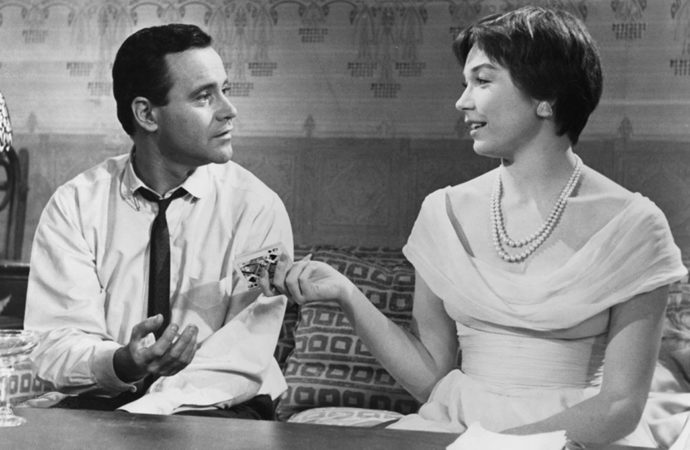



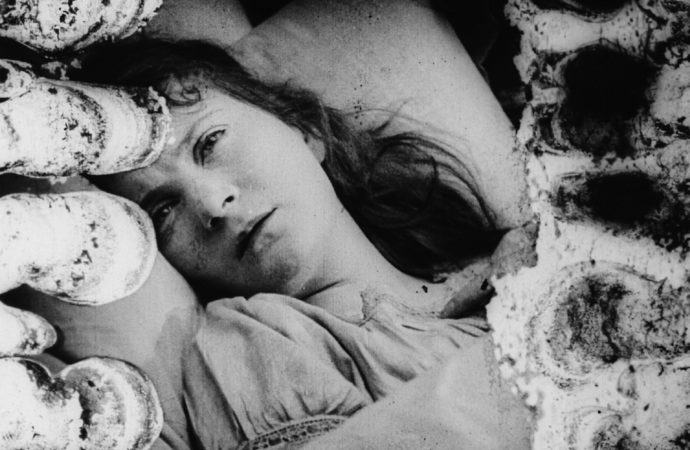
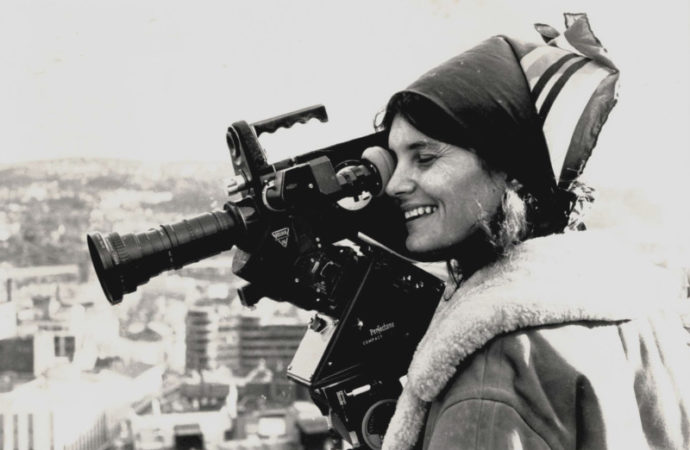
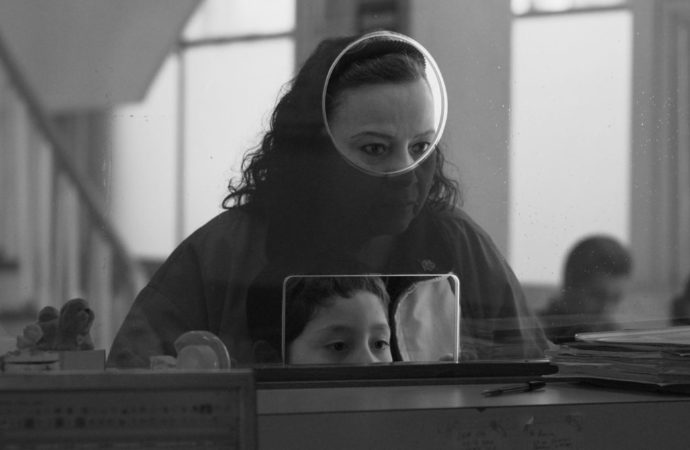
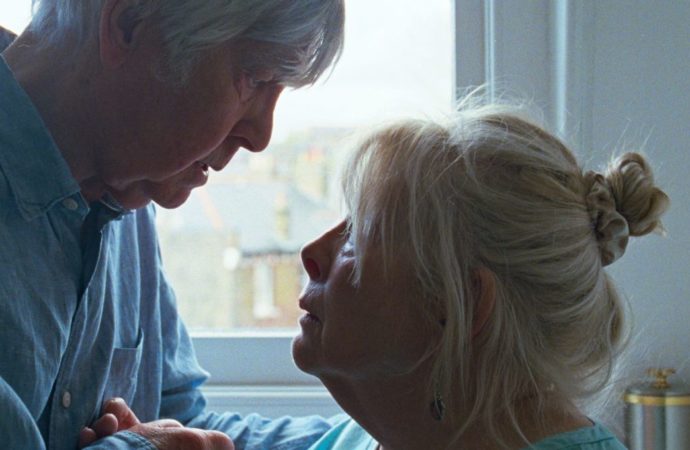
No one has posted any comments yet. Be the first person!